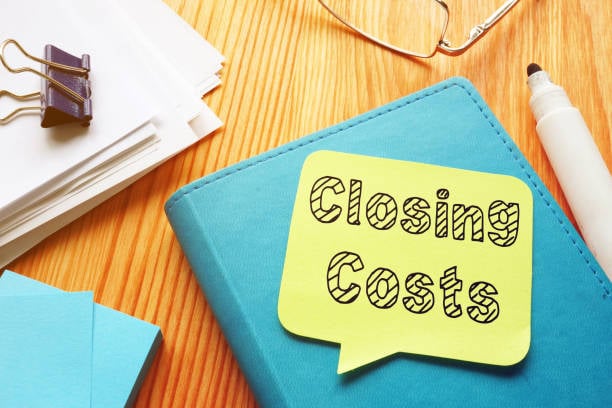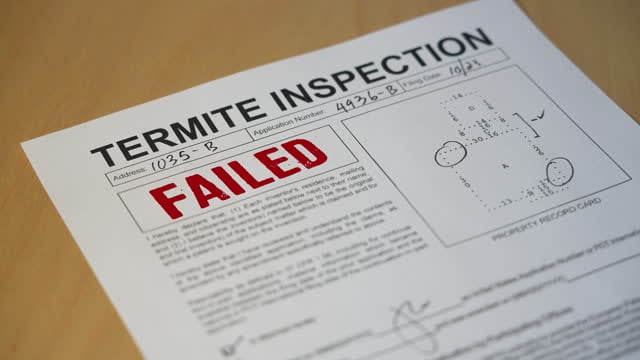Who Pays Closing Costs in Cash Sale Deals, Buyer or Seller?
Do you actually know who pays closing costs in cash sale transactions? It’s a puzzle that frequently leaves buyers and sellers scratching their heads, searching for clarity amid a sea of conflicting information.
The uncertainty can create significant hurdles, making it challenging for individuals to proceed confidently with their property transactions.
Before we even address that, though, are there closing costs on a cash sale?
Let’s take a look…
Table of Contents
Are There Closing Costs if You Pay Cash for a House?
Yes, closing costs exist in cash home purchases. Even though you’re avoiding lender fees, there are still expenses like title insurance, escrow fees, property taxes, and legal and administrative fees. Planning ahead is most definitely the key to staying financially prepared and avoiding unexpected setbacks.
Note: be sure to check out our guide on how much are closing costs on a house.
Who Pays Closing Costs in Cash Sale Situations?
Do cash buyers pay closing costs, or is splitting closing costs with the seller the norm? In cash sale situations, the responsibility for covering closing fees can vary.
Traditionally, cash buyers often find themselves in a more flexible position, negotiating these expenses as part of the deal. Some opt to handle all costs, while others split them with the seller.
It ultimately boils down to the agreement reached during the negotiation process.
With this in mind, let’s investigate the specifics of closing cost responsibilities in cash sale situations:
Closing Costs for Cash Buyer
Closing costs for cash buyers could include:
- Title search
- Owner’s title insurance
- Attorney fees
- Transfer taxes
- Courier fees
- Escrow fees
- Property taxes
- Homeowners insurance
- Homeowners association transfer fee
Seller Cash Sale Closing Costs
Expect to pay for the following if you’re a cash-only seller:
- Realtor commission
- Title transfer fees
- Wire fees
- Attorney fees
- Excise tax
- Prorated property taxes
How Much Are Closing Costs on a Cash Deal?
Closing costs on a cash deal typically range from 2% to 5% of the property’s purchase price. For instance, on a $300,000 home, closing fees might amount to $6,000 to $15,000. However, these costs vary based on location, property value, and specific expenses negotiated between the buyer and seller.
If you need further help and are in Southern California, please get in touch with us so we can discuss your situation in more detail!
How to Estimate Closing Costs When Paying Cash or Buying for Cash
Now that we know the different closing costs, how do you calculate closing costs on a cash sale?
Well, there’s a bit more too it than you might think, so it’s best if we look at each cost in isolation…
Title Search
The cost, typically $75 to $200, is estimated by contacting local title companies and involves the thorough research of public records to confirm ownership and uncover complexities.
Your chosen title company conducts the search to ensure a clear title, pinpointing any discrepancies. This meticulous examination guarantees a secure transaction, preventing future legal entanglements and safeguarding your investment.
Owner’s Title Insurance
Owner’s title insurance is a critical safeguard against various title issues and costs around 0.5% to 1% of the property’s value. This one-time premium, paid at closing, shields you from hidden defects.
This policy becomes invaluable in scenarios where:
- An unauthorized seller forges the deed,
- An unknown heir contests ownership, or
- Disputes arise over a deceased owner’s will.
Attorney Fees
Attorneys, who play a pivotal role in reviewing contracts and ensuring a clear title, offer their expertise through various fee structures, including hourly rates or flat fees for specific services.
To determine accurate estimates, obtaining quotes from local real estate attorneys is advisable. Additionally, attorney involvement in title review or presence at the closing is mandatory in certain states.
These fees fluctuate considerably across states, necessitating direct communication with an escrow officer at a nearby title company for precise details on state-specific requirements and costs.
Transfer Taxes
Typically calculated as a percentage of the property’s sale price, these taxes are vital for the transfer of title.
In California, the County Transfer Tax is $1.10 per $1,000 of the sales price, but certain cities impose additional City Transfer Taxes.
Therefore, researching your state’s specific transfer tax rate beforehand is crucial to budgeting effectively during your real estate purchase.
Are closing costs tax deductible, though? To clarify, yes, some are deductible, but not all.
Courier Fees
Handling essential documents during a real estate transaction might necessitate courier services, especially for items that cannot be electronically transported for closing.
These courier fees, typically around $20, vary based on the distance, urgency, and the courier service’s pricing structure. To budget accurately, obtain quotes from courier services, considering the specific needs of your transaction.
Escrow Fees
Typically ranging from 1% to 2% of the sale price, escrow fees cover services such as:
- Managing title transfers
- Recording deeds
- Disbursing funds according to the purchase agreement.
The exact percentage might vary, and some title companies opt for flat fees instead.
Property Taxes
Property taxes are typically prorated between the buyer and seller during the transaction, depending on the property’s assessed value and the local tax rate.
For California homebuyers trying to estimate property taxes, you can estimate it by multiplying your home’s purchase price by 1%. However, it’s essential to be aware of state-specific regulations; in some cases, states charge property taxes in advance.
If the seller has prepaid these taxes, the buyer may need to reimburse the seller for a prorated portion upon the property transfer, ensuring a fair distribution of this financial responsibility.
Homeowners Insurance
In California, homeowners typically pay around $1,383 annually, approximately $115 per month, for insurance covering a $300,000 dwelling. This amount is less than the national average of $1,754.
This expense is influenced by the property’s location, size, and coverage amount.
Homebuyers should also be aware that they might need to pay the entire annual premium for their homeowner’s insurance at closing. This amount fluctuates based on the coverage level, location, home value, size, and risk factors such as susceptibility to natural disasters.
Homeowners Association Transfer Fee
This fee, which is separate from your annual HOA dues, covers administrative expenses tied to transferring membership from the seller to the buyer. HOA transfer fees are typically $100–$400, with some states having caps on these charges.
So, what documents do I need to sell my house for cash in this respect? Well, it’s essential to address this with the HOA directly. This fee compensates the HOA board for the paperwork and documents involved in the ownership transfer, ensuring a seamless transition of membership within the community.
Phew! That’s a lot of costs to think about. If you’re in SoCal and are considering selling your home, please get in touch with us so we can discuss your situation in more detail!
Eliminated Closing Costs on Cash Sale Deals
In cash sale deals, several closing costs commonly associated with traditional mortgage transactions are eliminated, significantly reducing the cost of selling a house in California:
- Lender-Related Fees: Cash buyers bypass lender fees such as loan origination charges and application fees since there is no need for a mortgage.
- Lender’s Title Insurance: Without a mortgage lender involved, the need for a lender’s title insurance, which protects the lender’s interests, is eliminated.
- Appraisal Fees: Cash buyers skip the appraisal process, saving costs associated with evaluating the property’s value, a requirement in mortgage transactions.
- Mortgage Broker Fees: Cash sales don’t involve mortgage brokers, so fees associated with their services, like application or broker commission fees, are eliminated.
- Interest Charges: Since there’s no mortgage, buyers avoid paying interest on the loan amount, which significantly reduces the overall cost.
- Prepayment Penalties: Cash buyers are not subject to prepayment penalties that mortgage borrowers may incur for paying off the loan early.
Want to Totally Eliminate Your Cash Offer Closing Costs?
Looking to sell your property hassle-free and without the burden of closing costs?
You’re in luck, especially if you’re in Southern California and want to know how to sell your house without paying commission. At SoCal Home Buyers, we understand the importance of a seamless transaction.
We generally cover all closing costs associated with your sale, making the process incredibly straightforward for you.
Here’s How it Works:
- Get in Touch: Reach out to us at 951-331-3844 or fill out the short form below to request your no-obligation cash offer.
- Personalized Discussion: Expect a swift response from our team. We’ll delve into the details of your property during a friendly conversation, ensuring we understand your needs fully.
- Expert Evaluation: We’ll schedule a convenient one-time inspection to assess your property thoroughly. We’ll then present you with a fair cash offer based on the evaluation. If it aligns with your expectations, consider your home officially sold!
- Your Preferred Closing: You have the flexibility to select your closing date. Once decided, relax and leave the rest to us. Payments can be made through a hassle-free process, whether via check or money order.
Ready to eliminate your closing costs and sell your property stress-free? Contact us today to get started on your hassle-free selling journey with SoCal Home Buyers!
Final Points on the Closing Cost on Cash Sale Deals
Understanding real estate closing costs, especially in cash transactions, can feel overwhelming.
Navigating expenses like title insurance and attorney fees is crucial for sellers and buyers. Effective negotiation, clear communication, and mutual agreements are key.
Here at SoCal Home Buyers, we provide a solution. In Southern California, we handle closing costs, ensuring a smooth experience. Our process, including personalized discussions and flexible closing dates, makes selling hassle-free.
Additional reading: How long does it take to close on a house with cash?
FAQs
Is There Closing Cost on Land When Paying Cash?
Yes, there are closing costs when paying cash for land. Despite avoiding lender-related fees, expenses like title searches, attorney fees, and transfer taxes apply. Additional costs may include survey fees and potential homeowners association fees. Collaborating with professionals is a must to understand these intricacies.
If I Pay Cash for a House Do I Get the Deed?
When you buy a house outright without a mortgage, you still receive the deed to the property. The deed serves as legal proof of ownership. and outlines the transfer of property from the seller to the buyer. In cash transactions, the deed is transferred directly to the buyer after completing the closing process.
Do Closing Costs Have to Be Paid in Cash?
While paying cash for a house is common, it doesn’t necessarily mean all closing costs have to be paid in physical cash. Closing costs can be paid through wire transfers, certified checks, or electronic fund transfers. The specifics of this can vary depending on whom you’re dealing with.










